
Munda Dive Sites: Underwater Paradise in the Solomon Islands
Nestled in the heart of the Solomon Islands, Munda is a hidden gem for diving enthusiasts. This serene destination offers some of the most pristine and diverse underwater landscapes in the world. The crystal-clear waters of Munda are home to vibrant coral reefs, an abundance of marine life, and historical World War II wrecks, making it a must-visit for both novice and experienced divers. Munda's dive sites are renowned for their exceptional visibility and rich biodiversity. Divers can explore the colorful coral gardens teeming with tropical fish, encounter majestic manta rays, and even spot elusive sea turtles. The underwater topography includes dramatic drop-offs, underwater caves, and tunnels, providing thrilling adventures at every turn. One of the highlights of diving in Munda is the chance to explore the wrecks from World War II. These sunken relics offer a unique glimpse into history, with many of them now serving as artificial reefs that attract a wide variety of marine life. The combination of natural beauty and historical intrigue makes diving in Munda an unforgettable experience.
Local tips in Munda Dive Sites
- Visit during the dry season from April to November for the best diving conditions and visibility.
- Bring your own dive gear if possible, as equipment rental options can be limited.
- Hire a local dive guide to explore the lesser-known sites and learn about the area's history.
- Stay hydrated and use eco-friendly sunscreen to protect the delicate marine ecosystem.
- Combine your dive trip with a visit to local villages to experience the rich culture of the Solomon Islands.
Munda Dive Sites: Underwater Paradise in the Solomon Islands
Nestled in the heart of the Solomon Islands, Munda is a hidden gem for diving enthusiasts. This serene destination offers some of the most pristine and diverse underwater landscapes in the world. The crystal-clear waters of Munda are home to vibrant coral reefs, an abundance of marine life, and historical World War II wrecks, making it a must-visit for both novice and experienced divers. Munda's dive sites are renowned for their exceptional visibility and rich biodiversity. Divers can explore the colorful coral gardens teeming with tropical fish, encounter majestic manta rays, and even spot elusive sea turtles. The underwater topography includes dramatic drop-offs, underwater caves, and tunnels, providing thrilling adventures at every turn. One of the highlights of diving in Munda is the chance to explore the wrecks from World War II. These sunken relics offer a unique glimpse into history, with many of them now serving as artificial reefs that attract a wide variety of marine life. The combination of natural beauty and historical intrigue makes diving in Munda an unforgettable experience.
When is the best time to go to Munda Dive Sites?
Iconic landmarks you can’t miss
Heritage Park Hotel
Discover the rich culture and stunning landscapes of Honiara while enjoying a comfortable stay at Heritage Park Hotel in the Solomon Islands.
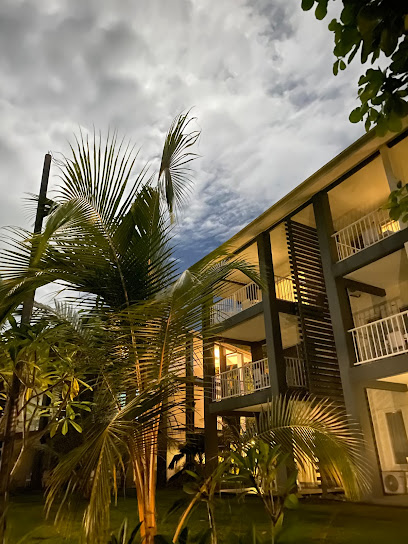
King Solomon Hotel
Discover the perfect blend of comfort and cultural charm at King Solomon Hotel in Honiara, a unique stay in the heart of the Solomon Islands.

Solomon Kitano Mendana Hotel
Discover the perfect blend of comfort and culture at Solomon Kitano Mendana Hotel in Honiara, your gateway to the enchanting Solomon Islands.

Fatboys Resort
Experience the idyllic beauty and adventurous spirit of Gizo at Fatboys Resort, your ultimate tropical getaway in the Solomon Islands.

Agnes Lodge
Discover tranquility at Agnes Lodge in Munda, where stunning views, comfortable lodging, and local charm create the perfect escape in the Solomon Islands.

Dive Gizo
Explore the vibrant underwater world of Gizo with Dive Gizo, your gateway to unforgettable diving adventures in the Solomon Islands.
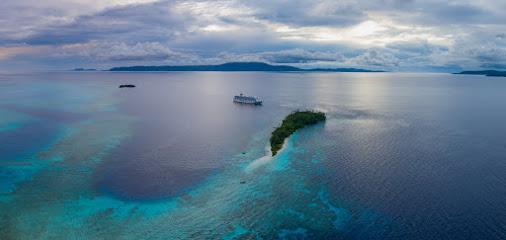
Imagination Island Coral Reef Resort
Discover the stunning underwater paradise at Imagination Island Coral Reef Resort, a tropical haven for snorkeling and relaxation in Gizo, Solomon Islands.
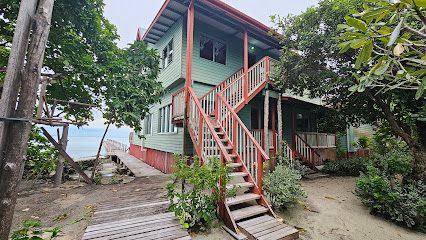
Uepi Island Resort
Experience the ultimate tropical escape at Uepi Island Resort, where adventure meets tranquility in the heart of the Solomon Islands.

Oravae Cottage
Discover the tranquil beauty of Oravae Cottage, a premier resort hotel in Gizo, Solomon Islands, perfect for relaxation and adventure seekers.

Titiru Eco Lodge
Discover Titiru Eco Lodge: A tranquil escape in Munda, Honiara, where nature meets sustainable luxury for the ultimate island getaway.
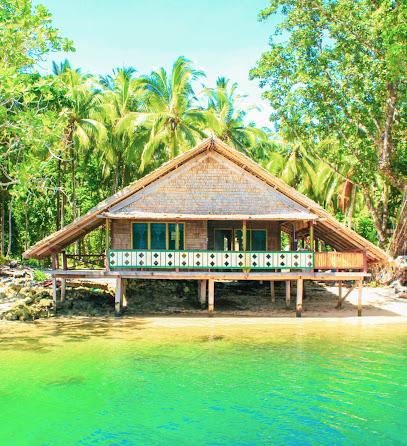
Zipolo Habu Resort
Discover the serene beauty of Zipolo Habu Resort on Lola Island, a tropical paradise offering relaxation, adventure, and rich cultural experiences.

Bilikiki Cruises
Discover the breathtaking underwater beauty of the Solomon Islands with Bilikiki Cruises, a top choice for divers seeking adventure and community.
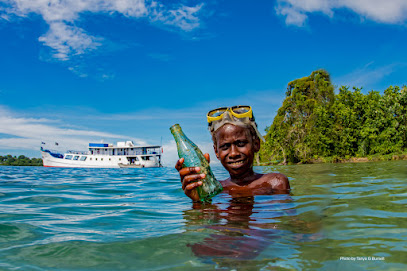
Maravagi beach resort
Experience the pristine beauty and vibrant marine life at Maravagi Beach Resort, a serene public beach on Mangalonga Island perfect for relaxation and adventure.
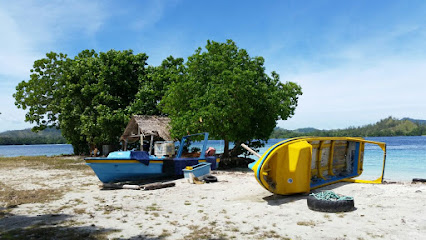
Tulagi Dive
Discover the breathtaking underwater paradise of the Solomon Islands at Tulagi Dive, your ultimate diving destination in Honiara.
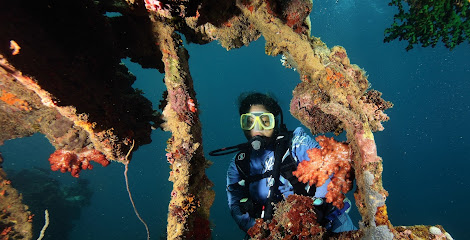
Marovo Lagoon
Explore the beauty of Marovo Lagoon, the world's largest saltwater lagoon, with its stunning coral reefs and vibrant local culture.
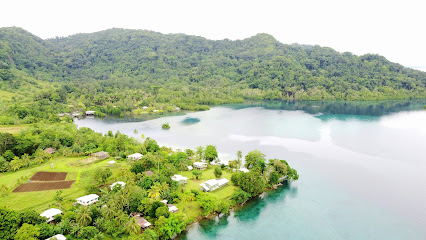
Unmissable attractions to see
Zipolo Habu Resort
Discover the enchanting Zipolo Habu Resort on Lola Island, where tropical beauty and adventure meet in the stunning Solomon Islands.

Solomon Islands Dive Expeditions
Discover the underwater wonders of the Solomon Islands with expert-led SCUBA diving tours at Solomon Islands Dive Expeditions.
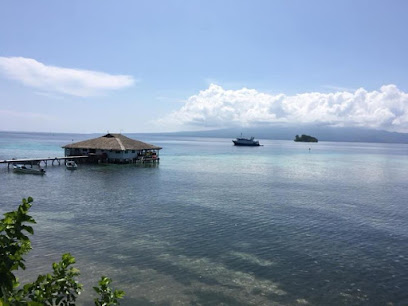
Essential places to dine
Breakwater Cafe
Discover culinary delights and breathtaking views at Breakwater Cafe in Honiara - a must-visit destination for every traveler.
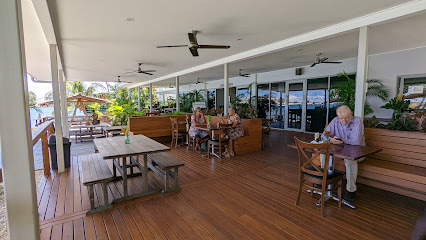
Coral Sea Resort & Casino
Discover Coral Sea Resort & Casino: where tropical luxury meets exhilarating entertainment in Honiara.

King Solomon Hotel
Discover comfort and convenience at King Solomon Hotel in Honiara - your perfect retreat for exploring the beautiful Solomon Islands.

Solomon Kitano Mendana Hotel
Discover comfort and culture at Solomon Kitano Mendana Hotel in Honiara - your gateway to exploring the stunning Solomon Islands.

Tenkai Sushi Cafe
Discover authentic Japanese flavors at Tenkai Sushi Cafe in Honiara – where fresh ingredients meet exceptional culinary artistry.
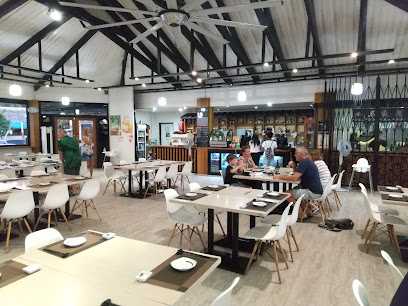
Fatboys Resort
Experience paradise at Fatboys Resort in Gizo - where stunning scenery meets exceptional dining in the heart of the Solomon Islands.

Haydn's Steakhouse
Experience culinary excellence at Haydn's Steakhouse in Honiara – where local flavors meet international flair.
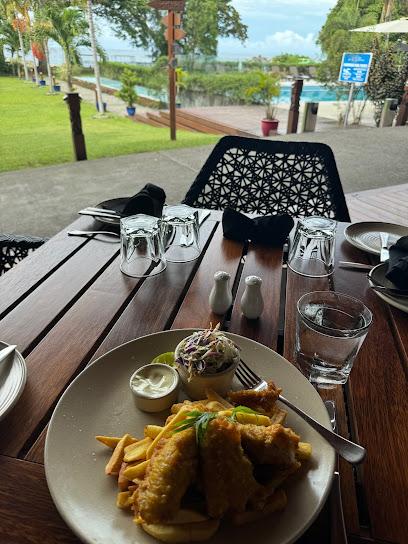
Injoy Restaurant
Discover authentic Chinese cuisine at Injoy Restaurant in Honiara - where flavor meets hospitality.
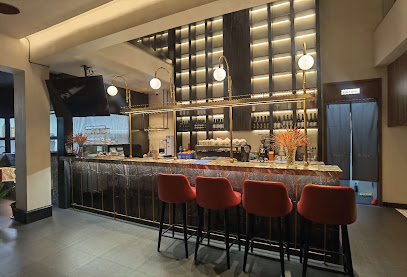
Bilikiki Cruises
Discover the breathtaking underwater beauty of the Solomon Islands with Bilikiki Cruises - your gateway to unforgettable SCUBA adventures.
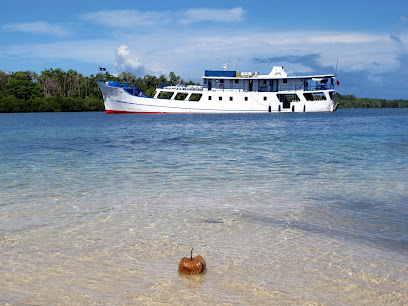
Club Havanah
Experience the essence of French cuisine at Club Havanah in Honiara, where every dish is crafted with passion and served with elegance.
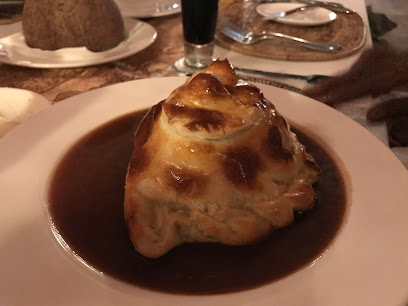
The King of Meatz
Explore the ultimate destination for meat lovers at The King of Meatz in Kukum—where quality meets flavor in every cut.
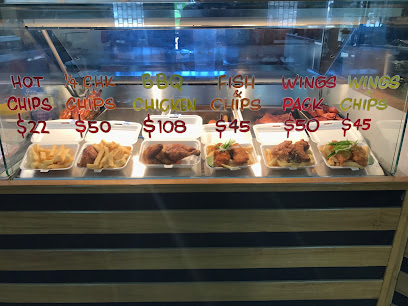
Jina's Restaurant
Savor authentic Chinese flavors at Jina's Restaurant in Honiara – where culinary tradition meets local charm.
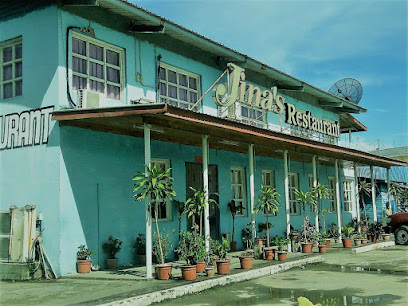
Hakubai
Experience authentic Japanese cuisine at Hakubai in Honiara - where tradition meets taste for an unforgettable dining adventure.
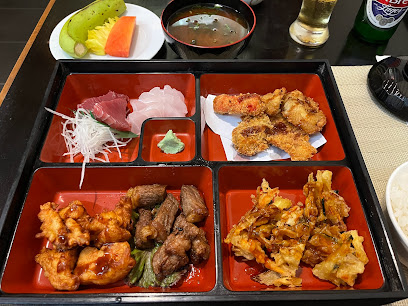
Munda Bar
Discover Munda Bar: A lively waterfront retreat in Munda offering local drinks and vibrant social vibes amidst stunning views.
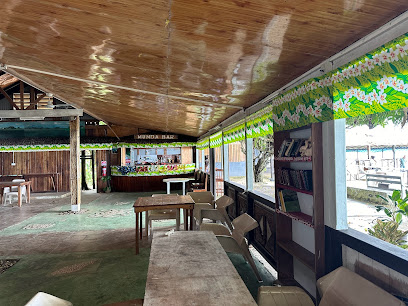
Markets, malls and hidden boutiques
Honiara Central Market
Discover the vibrant energy of Honiara Central Market, a cultural gem where local produce and artisan crafts come together in a sensory delight.
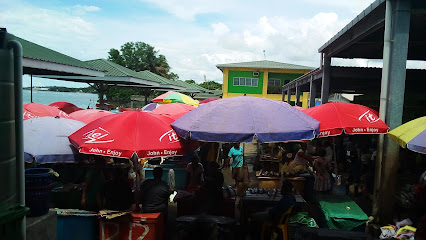
Solomon Kitano Mendana Hotel
Discover the perfect blend of comfort and culture at Solomon Kitano Mendana Hotel in Honiara, your gateway to the Solomon Islands.

Agnes Lodge
Experience tranquil lodging at Agnes Lodge in Munda, where stunning nature meets warm hospitality and adventure awaits.

Dive Gizo
Discover the underwater paradise of Gizo at Dive Gizo, where adventure meets marine beauty in the heart of the Solomon Islands.
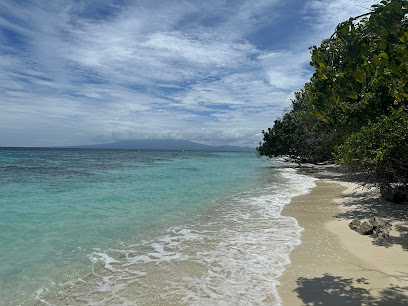
Uepi Island Resort
Discover the serene beauty of Uepi Island Resort, a tropical paradise perfect for relaxation and underwater adventures in the Solomon Islands.

Titiru Eco Lodge
Discover the beauty of Munda at Titiru Eco Lodge, an eco-friendly sanctuary offering relaxation, adventure, and breathtaking landscapes.
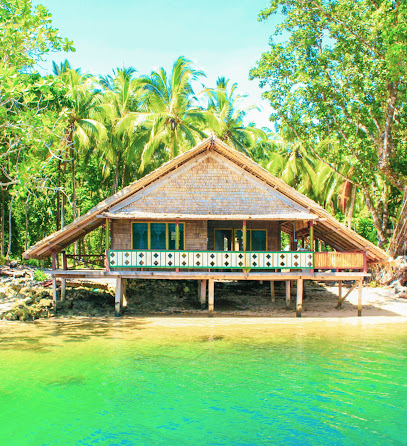
Zipolo Habu Resort
Experience the tranquility and adventure of Zipolo Habu Resort in the stunning Vona Vona Lagoon, where luxury meets nature's beauty.

Bilikiki Cruises
Experience unparalleled SCUBA diving adventures with Bilikiki Cruises, diving into the vibrant marine wonders of the Solomon Islands.
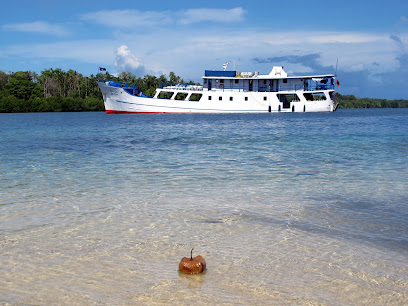
Tulagi Dive
Discover the vibrant underwater world of the Solomon Islands at Tulagi Dive, your gateway to unforgettable diving adventures.
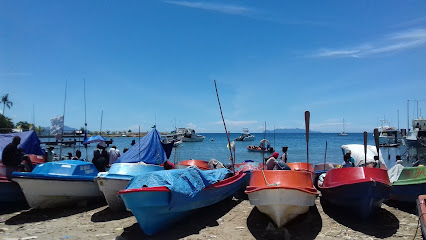
S.I. Visitors Bureau
Explore the Solomon Islands with insights from the S.I. Visitors Bureau - your essential guide to adventure, culture, and breathtaking beauty.
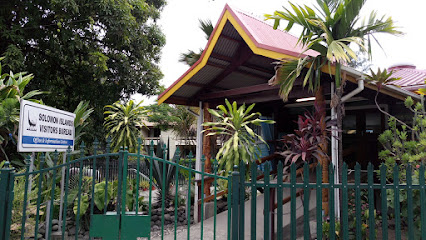
Solomon Islands Dive Expeditions
Explore the breathtaking underwater world of the Solomon Islands with Solomon Islands Dive Expeditions, offering exceptional scuba diving adventures and quality lodging.
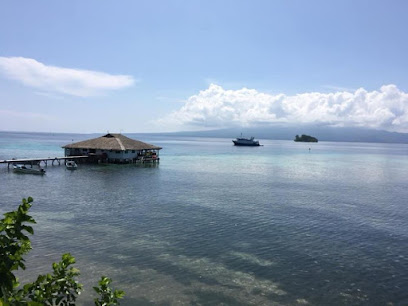
Extreme Adventures
Experience the breathtaking underwater world at Extreme Adventures, the premier dive shop in Honiara, Solomon Islands.

Nautilus Books&Gifts
Explore Nautilus Books & Gifts in Honiara for a unique collection of local souvenirs, crafts, and literature that embody the spirit of the Solomon Islands.

Dive Shop
Discover the underwater paradise of the Solomon Islands at Honiara's leading Dive Shop, where adventure meets expert guidance.
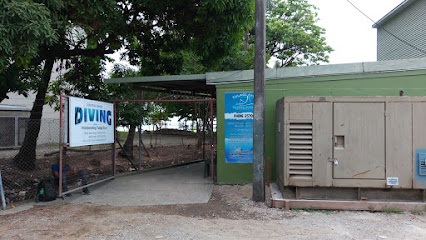
DJ Graphics
Explore Honiara's DJ Graphics for authentic souvenirs and local artwork that capture the spirit of the Solomon Islands.
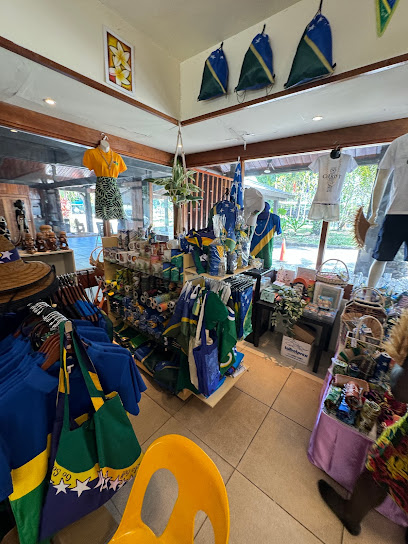
Essential bars & hidden hideouts
Coral Sea Resort & Casino
Discover the perfect blend of relaxation and excitement at Coral Sea Resort & Casino in Honiara, where tropical beauty meets vibrant entertainment.

Tenkai Sushi Cafe
Experience authentic Japanese cuisine in Honiara at Tenkai Sushi Cafe, where fresh ingredients meet Pacific flavors in a cozy setting.
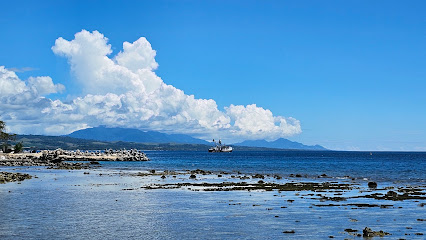
Dive Gizo
Explore the vibrant underwater world at Dive Gizo in the Solomon Islands, where adventure and beauty await every diving enthusiast.
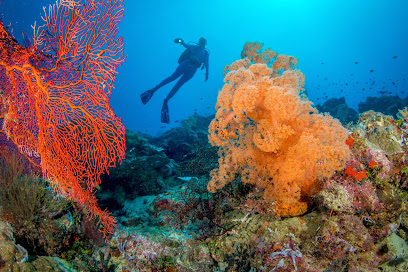
Bilikiki Cruises
Experience the breathtaking underwater world of the Solomon Islands with Bilikiki Cruises, your premier SCUBA tour agency in Honiara.
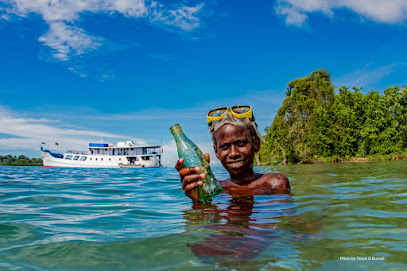
Iron Bottom Sound Monarch Hotel
Discover the tranquil beauty of Iron Bottom Sound Monarch Hotel in Honiara, where comfort meets the rich culture of the Solomon Islands.

SOLBREW
Explore Honiara's vibrant brewery scene at Solbrew, where exceptional craft beers meet local flavors in a lively atmosphere.
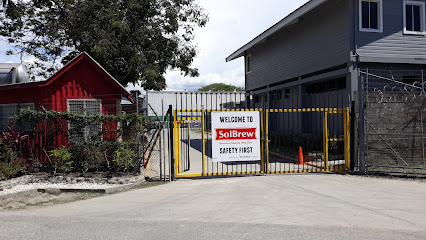
Solomon Islands Dive Expeditions
Explore the vibrant underwater world of the Solomon Islands with expert guidance from Solomon Islands Dive Expeditions, ideal for all diving enthusiasts.
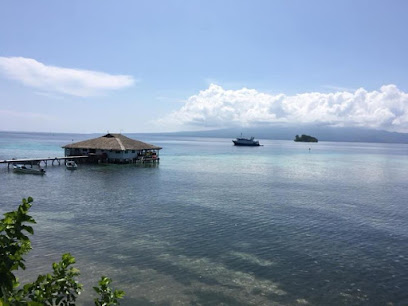
Kava Bar Munda
Experience the authentic taste of the Pacific at Kava Bar Munda, where relaxation and local culture come together in a vibrant atmosphere.
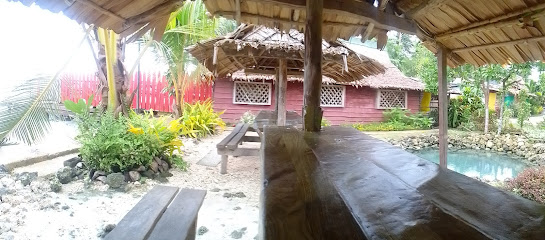
Munda Bar
Discover the laid-back charm of Munda Bar, a perfect escape in the heart of Munda offering stunning views, local drinks, and vibrant culture.
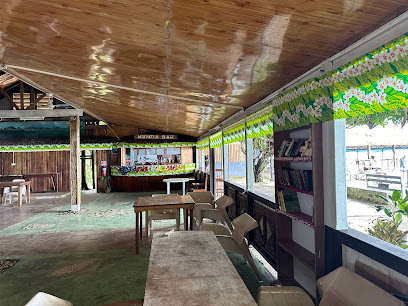
in honiara
Experience the vibrant nightlife of Honiara at this premier bar, where refreshing drinks and local culture come together in a lively atmosphere.

Local Phrases about Munda Dive Sites
-
- HelloAllo
[ah-loh] - GoodbyeTata
[tah-tah] - YesOo
[oh] - NoAe
[eye] - Please/You're welcomeTangio
[tang-ee-oh] - Thank youTangio tumas
[tang-ee-oh too-mahs] - Excuse me/SorrySagaria
[sah-gah-ree-ah] - How are you?I gat bel?
[ee gat bell] - Fine. And you?Bel ia. Yu?
[bell ee-ah. you?] - Do you speak English?Yu save toktok long Inglish?
[you sah-veh toktok long Ing-gleesh?] - I don't understandMi no save
[mee noh sah-veh]
- HelloAllo
-
- I'd like to see the menu, pleaseMi laek lukim menu, plis
[mee lie-ehk loo-keem menu, plees] - I don't eat meatMi no kaik abus
[mee noh kah-ee-kah-ee ah-boos] - Cheers!Kampei!
[kahm-pay] - I would like to pay, pleaseMi laek fo pei, plis
[mee lie-ehk foh pay, plees]
- I'd like to see the menu, pleaseMi laek lukim menu, plis
-
- Help!Helpim mi!
[help-eem mee] - Go away!Go awe!
[goh ah-weh] - Call the Police!Kolem polis!
[koh-lehm poh-lees] - Call a doctor!Kolem dokta!
[koh-lehm dohk-tah] - I'm lostMi las
[mee lahs] - I'm illMi sik
[mee seek]
- Help!Helpim mi!
-
- I'd like to buy...Mi laek fo bel...
[mee lie-ehk foh bell] - I'm just lookingMi jas luk onli
[mee jahs look ohn-lee] - How much is it?Hao mas?
[how mahs] - That's too expensiveIumi sae ia hemi moa espensiv
[you-mee sah-eh ee-ah heh-mee moh-ah es-pen-siv] - Can you lower the price?Yu ken lukaotem prais?
[you kehn loo-kah-oh-tehm prah-ees]
- I'd like to buy...Mi laek fo bel...
-
- What time is it?Hao taem nao?
[how tah-em now] - It's one o'clockHemi wan o'klok
[heh-mee wahn oh-klok] - Half past (10)Haf pasten
[hahf pah-stehn] - MorningMonin
[moh-neen] - AfternoonApunun
[ah-poo-noon] - EveningIvinin
[ee-vee-neen] - YesterdayDei ya
[day yah] - TodayTudei
[too-day] - TomorrowTumora
[too-moh-rah] - 1Wan
[wahn] - 2Tu
[too] - 3Tri
[tree] - 4Fo
[foh] - 5Faiv
[fah-eev] - 6Sikis
[see-kees] - 7Seven
[seh-vehn] - 8Eit
[ayt] - 9Nain
[nine] - 10Ten
[tehn]
- What time is it?Hao taem nao?
-
- Where's a/the...?Hao long...
[how lawng] - What's the address?Wanem adris?
[wahn-em ah-driss] - Can you show me (on the map)?Yu save soim mi long map?
[you sah-veh soy-mee mee lawng map] - When's the next (bus)?Hao long namba wan?
[how lawng nahm-bah wahn] - A ticket (to ....)Wan tiket long ...
[wahn tee-keh lohng]
- Where's a/the...?Hao long...
History of Munda Dive Sites
-
Munda Dive Sites in the Solomon Islands are steeped in history, particularly due to their role during World War II. The area was a significant battleground between Allied and Japanese forces. The Battle of Munda Point, which took place in 1943, was a critical part of the Solomon Islands campaign. The Allies aimed to capture the Japanese airstrip at Munda, which was strategically important for controlling the region. The remnants of this period, such as sunken ships, downed aircraft, and military artifacts, now serve as underwater attractions for divers.
-
The Munda Airfield, originally constructed by the Japanese in 1942, became a focal point during World War II. After intense fighting, the airfield was captured by the United States Marine Corps in August 1943. Today, it serves as a poignant reminder of the past and offers a unique historical dive experience. Divers can explore wrecks and artifacts scattered around the area, providing a vivid glimpse into the wartime history of the Solomon Islands.
-
The Munda region is also rich in cultural heritage, being the traditional land of the Roviana people. The Roviana Lagoon, which is adjacent to the dive sites, has long been a center of Roviana culture and history. The lagoon is home to ancient shrines, traditional fishing methods, and legends that have been passed down through generations. Exploring the cultural aspects of the Roviana people provides a deeper understanding of the local traditions and their connection to the sea.
-
One of the notable historical discoveries in Munda Dive Sites is the wreck of the USS John Penn, a US Navy transport ship. The ship was sunk by Japanese aircraft on August 13, 1943, just off the coast of Munda. The wreck lies in relatively shallow waters, making it accessible for divers. Exploring the USS John Penn offers a tangible connection to the naval battles that took place in the Solomon Islands during World War II.
-
Several Japanese transport ships were sunk during the battles around Munda, and their wrecks now lie scattered across the seafloor. These wrecks are a testament to the intense naval engagements that occurred in the area. Divers can explore these underwater relics, which often house thriving marine ecosystems, adding to the allure of historical diving in Munda.
-
The Coastwatchers played a crucial role in the Solomon Islands during World War II. These Allied intelligence operatives, often stationed in remote areas, provided vital information on Japanese movements and operations. Their reports were instrumental in the success of several key battles, including those around Munda. The legacy of the Coastwatchers is an integral part of the history of Munda Dive Sites, highlighting the bravery and resourcefulness of these unsung heroes.
Munda Dive Sites Essentials
-
Munda is located in the Western Province of the Solomon Islands. The nearest international gateway is Honiara International Airport (HIR) on the island of Guadalcanal. From Honiara, you can take a domestic flight to Munda Airport (MUA), operated by Solomon Airlines. The flight typically takes about one hour. Alternatively, you can reach Munda by ferry or private boat, but this option is less frequent and takes longer.
-
Once in Munda, the most common mode of transportation is by boat, especially for reaching dive sites and nearby islands. Taxis and minibuses are available for getting around on land. Bicycles and scooters can also be rented for short trips. Walking is feasible for exploring the immediate town area.
-
The official currency is the Solomon Islands Dollar (SBD). Credit cards are accepted at some hotels and larger shops, but it is advisable to carry cash for smaller establishments and local markets. ATMs are available in Munda, but it's wise to bring sufficient cash, especially for remote areas.
-
Munda is generally safe for tourists, but standard precautions should be taken. Avoid walking alone at night in unfamiliar areas and keep your belongings secure. There are no specific high-crime areas targeting tourists, but petty theft can occur, so stay vigilant.
-
In case of emergency, dial 999 for immediate assistance. Munda has a local police station and a medical clinic for basic healthcare needs. For more serious medical emergencies, you may need to be evacuated to Honiara. It is highly recommended to have travel insurance that covers medical emergencies and evacuation.
-
Fashion: Do dress modestly, especially when visiting villages and religious sites. Avoid overly revealing clothing. Religion: Do respect local customs and traditions. Remove your hat and shoes when entering churches. Public Transport: Do be polite and greet the driver when boarding. Don't eat or drink on public transport. Greetings: Do greet people with a smile and a handshake. Use 'Gudfala morning' (good morning) or 'Gudfala afternoon' (good afternoon). Eating & Drinking: Do try local foods and accept food offerings graciously. Don’t waste food, as it is considered disrespectful.
-
To experience Munda like a local, visit the local markets where you can buy fresh produce and handmade crafts. Engage with the local community, as they are friendly and often willing to share stories about their culture and history. Don't miss visiting the WWII relics and the Skull Island. For a unique experience, try a traditional Melanesian feast, often arranged by local resorts.
Trending Landmarks in Munda Dive Sites
Nearby Cities to Munda Dive Sites
-
Things To Do in Taro Island
-
Things To Do in Yandina
-
Things To Do in Arawa
-
Things To Do in Honiara
-
Things To Do in Tulagi
-
Things To Do in Auki
-
Things To Do in Kokopo
-
Things To Do in Rabaul
-
Things To Do in Alotau
-
Things To Do in Kimbe
-
Things To Do in Kavieng
-
Things To Do in Lata
-
Things To Do in Port Moresby
-
Things To Do in Lae
-
Things To Do in Sola




